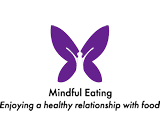Eating Behaviour Counselling: Helping You To Improve Your Eating Habits And Relationship With Food
“Emma has helped me so much with understanding my relationship with food.”
“After years of yo-yo dieting, I felt lost with food…”
Many people approach me asking for help to tackle their eating habits and improve their overall relationship with food. Often, people have a history of dieting and yet they’re still battling with weight issues, and they feel out of control of food. There’s a huge amount of information and advice online about healthy eating, so it can be overwhelming and confusing especially when it comes to the nutritional side of things, how to make healthy food choices and how to lose weight. When a person wants to improve their eating habits and relationship with food we have to look at the whole picture. I find that common issues come up and that many people are struggling with similar things, whether it’s finding time (and energy!) to plan and eat healthier meals (lifestyle), emotional eating, portion sizes, lack of nutritional knowledge, all-or-nothing thinking, poor self-care, impatience to lose weight, or mindless eating. This article explores such issues.
Eating On Autopilot
Many people eat mindlessly and with little thought, as eating is such a routine and automatic behaviour. Awareness is power, so I get clients thinking about what, how, how much and why they’re eating. It’s easy to serve yourself a big portion without  thinking whether you need that much food, to overeat in front of the TV or at a restaurant or to bolt down food without noticing it, but eating mindlessly doesn’t always equate to enjoyment. If we eat quickly and don’t notice what we’re eating it’s easy to go looking for more food soon afterwards, leading to overeating. Having an inner dialogue with yourself can be helpful, such as asking yourself “Am I hungry?” or “Do I want to eat this particular food?”, or “Let’s wait 15 minutes and if I still want food I can have it”, or thinking about how full you are when tempted by more food. If you feel hungry but it’s not far from mealtime, then asking yourself what time the next meal is may help you to decide whether to eat and how much to eat. And is it physical hunger or psychological hunger? When working with clients we explore the many different types of hunger and how to deal with them. Read my blog post: ‘What Is Mindful Eating?’.
thinking whether you need that much food, to overeat in front of the TV or at a restaurant or to bolt down food without noticing it, but eating mindlessly doesn’t always equate to enjoyment. If we eat quickly and don’t notice what we’re eating it’s easy to go looking for more food soon afterwards, leading to overeating. Having an inner dialogue with yourself can be helpful, such as asking yourself “Am I hungry?” or “Do I want to eat this particular food?”, or “Let’s wait 15 minutes and if I still want food I can have it”, or thinking about how full you are when tempted by more food. If you feel hungry but it’s not far from mealtime, then asking yourself what time the next meal is may help you to decide whether to eat and how much to eat. And is it physical hunger or psychological hunger? When working with clients we explore the many different types of hunger and how to deal with them. Read my blog post: ‘What Is Mindful Eating?’.
All-Or-Nothing Thinking
“One of the biggest realisations was the detrimental effect that years of trying different diets had had on my relationship with food”.
Many people get trapped in a cycle of yo-yo dieting, making it hard to lose weight, or if they lose weight, they regain it. ‘Black and white’ or all-or-nothing thinking and behaviours can lead to unhealthy patterns of eating, keeping us overweight or swinging between restrictive eating and overeating. All-or-nothing thinking is a very common mindset, so it’s an essential aspect to address. For example, “I mustn’t eat any of them- if I eat one I’ll have to finish the packet” or “I ate a piece of cake earlier, I’ve totally blown it so I’ll start again tomorrow”, or they might carry out weekday restraint but overindulge at weekends. I help clients to adopt a less rigid, black and white approach and replace it with a more flexible, ‘middle-way’ mindset to help them address overeating, escape yo-yo dieting and set up more realistic, enjoyable and sustainable eating habits. I also invite clients to think about how often they use various excuses to eat, other than hunger, for example “You mustn’t waste food” or “I was brought up eating dessert so I can’t go without it”.
Emotional Eating: Process, Don’t Store, Emotions
“I’ve come to realise my relationship with food is an ‘injury’, it’s not greed”.
 A key aspect of eating behaviour counselling is looking at emotional eating. Many clients report that they’re comfort eaters- they reach for food when they feel stressed, sad, lonely or bored. As children, they might have received food as a reward if they were upset, or they learned to associate food with love and being nurtured, and this relationship with food has continued into adulthood. People’s motivations to eat are many and varied, and for some, food is an attempt to fill an emotional void, such as loneliness, or they’re still struggling with issues from the past. Eating (and drinking alcohol) can have a calming effect, distracting us from what’s going on around us or from how we’re feeling, but it’s usually short lived. Some people may have a harsh inner critic that tells them they’re no good, and eating can be an attempt to numb unpleasant feelings associated with those self-loathing messages.
A key aspect of eating behaviour counselling is looking at emotional eating. Many clients report that they’re comfort eaters- they reach for food when they feel stressed, sad, lonely or bored. As children, they might have received food as a reward if they were upset, or they learned to associate food with love and being nurtured, and this relationship with food has continued into adulthood. People’s motivations to eat are many and varied, and for some, food is an attempt to fill an emotional void, such as loneliness, or they’re still struggling with issues from the past. Eating (and drinking alcohol) can have a calming effect, distracting us from what’s going on around us or from how we’re feeling, but it’s usually short lived. Some people may have a harsh inner critic that tells them they’re no good, and eating can be an attempt to numb unpleasant feelings associated with those self-loathing messages.
For some, binge-eating can be a way to temporarily relinquish control, especially if they have a compulsion to control all other aspects of their lives. For others, binge-eating, or food restriction, might be a way in which to take control for a moment- they might feel powerless in other aspects of their lives, and being able to control the type and amount of food they eat is one way in which they feel they can take back some of the power.
Unfortunately, emotional eating doesn’t address issues- we need to process emotions, not store emotions. Comfort eating can prevent people from problem-solving, but it can become such a habit as a way to ‘coping’ that people get trapped in a vicious cycle of emotional eating. If you’re constantly putting pressure on yourself to lose weight but you’re an emotional eater, try to make your top priority, initially, to address why you overeat, and weight loss is then often a positive by-product.
Webinar: ‘How To Have A Better Relationship With Food’.
“Quite honestly I feel like a different person because of the way Emma has helped me to feel more free around food and eating”.
Planning Ahead: Meals And Snacks
 Some clients feel that they need to build more structure into their daily eating. Perhaps eating properly hasn’t been at the top of their priority list until now- they lead very busy lives and find it hard to fit in regular meals. Being organised is a key part of weight loss and long-term weight management, so making sure the client has a well-stocked fridge, cupboard and freezer and encouraging them to do a regular food shop is essential, not only to help them prepare healthy meals and snacks but also from a motivational point of view and to ensure they’re eating enough variety. If clients are having a hard time eating right, then it can help to plan the night before what they will eat the next day, with the aim that they stick to that plan for that one day. Weekly planning can be too much for some people, so I encourage them to take things one day at a time. Furthermore, being clear in your mind about what you’re going to eat the next day can help some clients to feel less anxious.
Some clients feel that they need to build more structure into their daily eating. Perhaps eating properly hasn’t been at the top of their priority list until now- they lead very busy lives and find it hard to fit in regular meals. Being organised is a key part of weight loss and long-term weight management, so making sure the client has a well-stocked fridge, cupboard and freezer and encouraging them to do a regular food shop is essential, not only to help them prepare healthy meals and snacks but also from a motivational point of view and to ensure they’re eating enough variety. If clients are having a hard time eating right, then it can help to plan the night before what they will eat the next day, with the aim that they stick to that plan for that one day. Weekly planning can be too much for some people, so I encourage them to take things one day at a time. Furthermore, being clear in your mind about what you’re going to eat the next day can help some clients to feel less anxious.
Portions sizes
Portions are a common talking point, and practical strategies like eating from a smaller plate or buying smaller packets of food can help. Many clients relate to the power of an open packet, and so portioning out food such as nuts into small tubs can help. Clients are normally aware if they’re eating too much at mealtimes, though if a person is a ‘grazer’ it can be easy for them to underestimate how much food they’re actually consuming over the course of a day. I encourage clients to do calorie ‘shaving’- for example, sharing a dessert, leaving a couple of potatoes on the plate or having a smaller glass of wine. These are simple strategies to help clients cut calories without feeling deprived-the calories not eaten soon accumulate over time, which can be really motivating.
Nutrition: Ditching Old Diet Rules For Food Enjoyment & Satisfaction
“I now allow myself to eat those things because I no longer say “I can’t have that”.
Many of my clients find it helpful to talk through some basic nutrition- it’s a fundamental part of eating behaviour counselling and helps to motivate people to make some positive dietary changes, as they come to realise how they’ve eaten in the past and  why they might have struggled to lose weight, or lost weight but regained it. Some clients are ‘fat-phobic’- they’ve always avoided high-fat foods and opted for low-fat. Whilst eating some low-fat foods can be beneficial for health reasons and to help cut calorie consumption, fat also gives things flavour and it can really satisfy the appetite- it’s so important to enjoy our food and to feel satisfied, rather than eating ‘diet foods’ and always trying to endure hunger. Our diet also needs to provide us with ‘essential’ fats, which have numerous important health benefits. For example, oily fish, nuts and seeds contains omega 3, an essential fat which our bodies can’t make, so we must get it from food. Clients find it helpful to learn that counting calories is too simplistic and that it’s the quality of the food we eat that determines whether our bodies go into fat-storage or fat-burning mode. Have adequate nutritional knowledge is very empowering, and puts the client in a position to make better progress than if they’re just told what to eat without knowing the reasons why.
why they might have struggled to lose weight, or lost weight but regained it. Some clients are ‘fat-phobic’- they’ve always avoided high-fat foods and opted for low-fat. Whilst eating some low-fat foods can be beneficial for health reasons and to help cut calorie consumption, fat also gives things flavour and it can really satisfy the appetite- it’s so important to enjoy our food and to feel satisfied, rather than eating ‘diet foods’ and always trying to endure hunger. Our diet also needs to provide us with ‘essential’ fats, which have numerous important health benefits. For example, oily fish, nuts and seeds contains omega 3, an essential fat which our bodies can’t make, so we must get it from food. Clients find it helpful to learn that counting calories is too simplistic and that it’s the quality of the food we eat that determines whether our bodies go into fat-storage or fat-burning mode. Have adequate nutritional knowledge is very empowering, and puts the client in a position to make better progress than if they’re just told what to eat without knowing the reasons why.
Intuitive Eating
Intuitive eating is about using your ‘inner wisdom’ to help you to make good decisions about what and how much to eat. Rather than following someone else’s rules about what and how much to eat such as following a specific diet, if you can get more in tune with which foods suit your own body, which foods keep you going for longer than others and base your eating more on your hunger, fullness and enjoyment levels rather than following external rules and calorie counting, you can learn to eat in a way that’s more personalised and beneficial to you. Being more intuitive (or mindful) about your eating means doing yourself a favour by simply thinking before you eat, being present during the eating process (awarenesss and enjoyment) and being committed to giving your body the nutrients it needs to get you through the day.
Self-Care
 The starting point for improving your eating habits and having a better relationship with food is self-care. You might find that you neglect your own needs (both physical and psychological) because you’re too busy seeing to other people’s needs, or you might go to bed late and feel tired most of the time. When we’re tired it can be really hard to be mindful of our food choices because we’re simply in survival mode trying to get through the day and looking for the next ‘hit’ (sugar and/or caffeine). Self-care is the foundation stone on which to have a better relationship with food, so if you can start identifying and meeting your needs you’ll find it easier to make positive changes. Think of self-discipline as not about self-control and denial, but think of it as a form of self-care, for example, going to bed even though you’re really enjoying a film but you know that you need to feel energised for a busy day tomorrow. So getting more sleep, taking more exercise, not taking on too much work, pruning the to-do list or saying ‘no’ to others and drawing boundaries when you need to (to name a few). Self-care can feel quite alien for a lot of people, and they can even feel guilty for putting their own needs first at times, but it just requires practice and a bit of effort to help yourself, and once you start implementing self-care it will feel good. If we’re exhausted, stressed and even resentful from doing too much and not having adequate ‘me-time’, eating properly can fall right to the bottom of the priority list. Identify a couple of self-care behaviours that you know you’d really benefit from, and start implementing them today. What do you crave, other than food?
The starting point for improving your eating habits and having a better relationship with food is self-care. You might find that you neglect your own needs (both physical and psychological) because you’re too busy seeing to other people’s needs, or you might go to bed late and feel tired most of the time. When we’re tired it can be really hard to be mindful of our food choices because we’re simply in survival mode trying to get through the day and looking for the next ‘hit’ (sugar and/or caffeine). Self-care is the foundation stone on which to have a better relationship with food, so if you can start identifying and meeting your needs you’ll find it easier to make positive changes. Think of self-discipline as not about self-control and denial, but think of it as a form of self-care, for example, going to bed even though you’re really enjoying a film but you know that you need to feel energised for a busy day tomorrow. So getting more sleep, taking more exercise, not taking on too much work, pruning the to-do list or saying ‘no’ to others and drawing boundaries when you need to (to name a few). Self-care can feel quite alien for a lot of people, and they can even feel guilty for putting their own needs first at times, but it just requires practice and a bit of effort to help yourself, and once you start implementing self-care it will feel good. If we’re exhausted, stressed and even resentful from doing too much and not having adequate ‘me-time’, eating properly can fall right to the bottom of the priority list. Identify a couple of self-care behaviours that you know you’d really benefit from, and start implementing them today. What do you crave, other than food?
Be Patient
“I was eating totally the wrong things before, leaving me hungry all the time and still putting on weight. I’ve now lost over a stone in 4 months. I emphasise that this is not a diet! This is about just making better decisions about food”.
Many clients I meet have done rapid weight-loss programmes and lost a lot of weight very quickly, having followed a very low calorie diet- this can cause rapid fat loss over several weeks. Unfortunately they might lose weight, but then regain it. If they’re used to rapid weight loss they can be impatient to lose weight, and if they don’t anticipate such rapid weight loss again this can affect their motivation. I always emphasise the importance of gradual weight loss to help them keep the weight off long-term. Fortunately, however, many people who seek my help have got to the point where they realise that the rapid weight loss programmes haven’t provided the long-term solution they need. The good thing about slower, gradual weight loss is that it allows for more flexible eating.
Don’t Focus Exclusively On Weight Loss
Whilst I support clients wanting to lose weight, I’ve seen many people focus exclusively on weight loss without addressing their relationship with food. A weight loss goal is futile if a person has a poor relationship with food; perhaps when they’re not following a diet plan they eat mindlessly or eat for emotional reasons. It’s really important to work on improving your overall relationship with food alongside any weight loss goal. If a person battles with overeating, just focusing on overeating less can be a valuable goal in itself, whilst learning to understand why they overeat in the first place. This is why building self-insight and self-awareness is so important. When we have more self-understanding we can be more self-compassionate, which is a key component of positive, long-term change.
If you want to improve your eating habits and relationship with food don’t take on too much at once. Whilst it’s important to consider the whole picture, identify a couple of key areas that you feel you need to work on. If any of the above points resonate, focus in on just a few and create some strategies to help you start working towards making positive changes. Be realistic with any goal-setting, make it enjoyable and achievable, as that way you have a better chance of being consistent with your new habits, leading to long-term change.
SPECIAL OFFER on one-to-one sessions: buy four sessions up front and get the 4th session HALF PRICE (£30). To book a session or to arrange a FREE phone chat to discuss, please text/Whatsapp me (Emma Randall: 07961 423120) or email me. Sessions are online (Zoom) or in person (Surrey-based).
Read more about my webinars and workshops, and visit Eventbrite for the latest events schedule.

